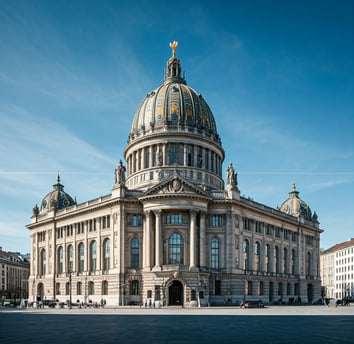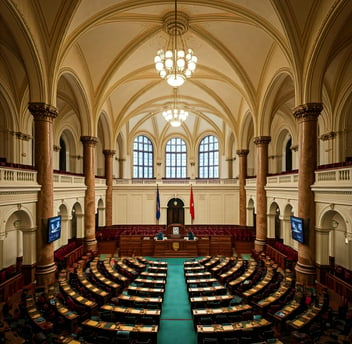Coalition Talk Deadlock Hits One Month
Hereik's Search for Stability & Change Mired by Roadblocks
HEREIK NEWSHEREIK
Eduard Edlar
9/28/20002 min read


In the aftermath of the historic 2000 election in Hereik, the nation's political landscape shifted dramatically. With the United Rejorian Party of Hereik (URPH) facing a severe setback and a diverse array of parties making significant gains, the formation of a new government has proven to be a monumental challenge. A month into the post-election period, coalition talks have hit a seemingly impassable deadlock, leaving Hereik in a state of political limbo. At the center of this political impasse are the United Hereik Liberal Revolutionary Front (LRFUH), a disparate array of agrarian parties, and conservative alternatives to the URPH, including the Nationalist Union (UN) and People’s Justice Party (YP). These key power players have found themselves at odds over critical policy issues and the distribution of ministerial portfolios.
The LRFUH, buoyed by its success in the election, has been adamant about implementing progressive policies that prioritize social welfare, environmental protection, and income equality. On the other side, the agrarian parties, despite their
shared focus on rural development and agriculture, have divergent views on economic reform and land distribution. The conservative parties, eager to provide stability and restore fiscal responsibility, are demanding a significant say in the government's economic policies.
One of the primary points of contention has been the allocation of ministerial positions. With multiple parties vying for key roles, negotiations have been marred by fierce competition and jockeying for power. Each party is determined to secure a significant share of the government's decision-making apparatus, making it increasingly difficult to reach a consensus.
The electorate, hopeful for a swift resolution, has grown increasingly impatient. As the nation waits for a new government to take shape, concerns about a leadership vacuum and a lack of governance have begun to loom large. The longer the deadlock persists, the more precarious Hereik's political stability becomes. Already, riots and protests with more than 100 members have reported a 27% increase and government trust continues to sag in the polls.
The deadlock in coalition talks is a stark reminder of the complexities inherent in coalition politics. Critics of the system, including left-wing activist Briar Rigs, have called for whatever coalition forms to take immediate action to address the lingering democratic failures in the country's rushed constitution.
The protracted deadlock in coalition talks has not only tested the patience of the electorate but also raised concerns about the nation's governance. With no government in place, Hereik faces a leadership void that has the potential to impact economic stability and essential policy decisions. The citizens are keenly aware that the challenges facing the nation, from economic stability to social welfare, require a functional government capable of making decisive decisions.
As Hereik continues to grapple with this political impasse, it underscores the need for political leaders to prioritize the interests of the nation above partisan ambitions. The citizens who voted for change are looking to their elected representatives to overcome their differences and form a government that can lead Hereik toward a brighter future.
In the coming weeks, the nation will anxiously watch as the deadlock is hopefully broken, and a new government emerges to take the reins. The stakes are high, and the pressure is on, as Hereik's search for stability faces its most significant test yet.


